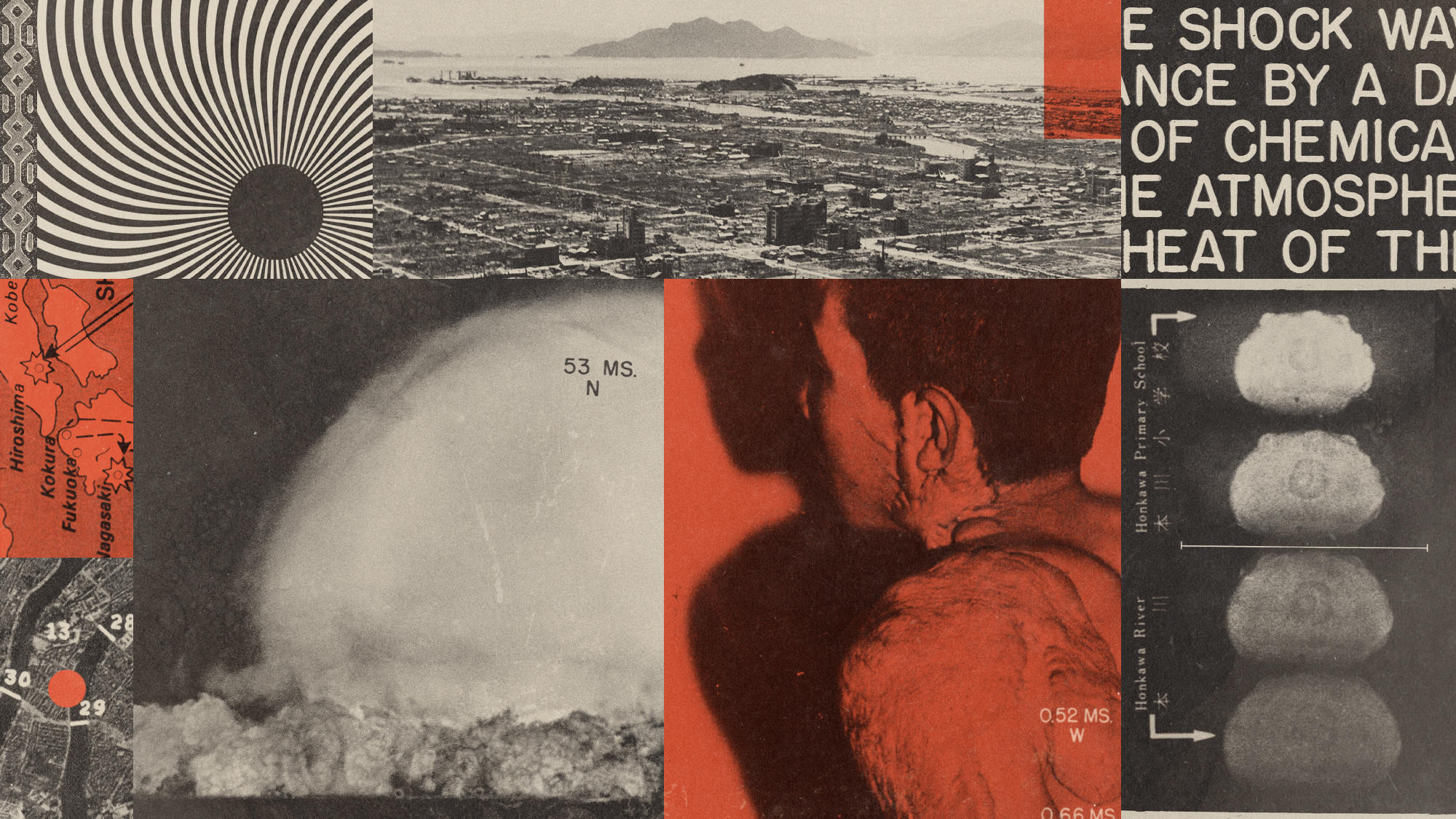Eighty years after Hiroshima: how close is nuclear conflict?
Eight decades on from the first atomic bomb 'we have blundered into a new age of nuclear perils'

A free daily email with the biggest news stories of the day – and the best features from TheWeek.com
You are now subscribed
Your newsletter sign-up was successful
Today marks 80 years since the US dropped the first atomic bomb on the Japanese city of Hiroshima.
More than 140,000 people died – tens of thousands instantaneously – with 70,000 perishing in a second bomb over Nagasaki three days later.
Yet as the world marks the anniversary, it seems that many of today's leaders have failed to learn the lessons of that terrible epoch-defining day.
The Week
Escape your echo chamber. Get the facts behind the news, plus analysis from multiple perspectives.

Sign up for The Week's Free Newsletters
From our morning news briefing to a weekly Good News Newsletter, get the best of The Week delivered directly to your inbox.
From our morning news briefing to a weekly Good News Newsletter, get the best of The Week delivered directly to your inbox.
What did the commentators say?
The memory of Hiroshima and Nagasaki seared itself "into the conscience of global leaders and the public", and "cast a long shadow over global efforts to contain nuclear arms", said Stephen Herzog, professor of the practice, Middlebury Institute of International Studies at Monterey, California, on The Conversation.
From the late 1960s onwards a series of landmark non-proliferation and test-ban treaties sought to limit the number and use of nuclear weapons worldwide.
Eighty years after the first atomic bomb "we have blundered into a new age of nuclear perils", said Jason Farago in The New York Times.
The Russian invasion of Ukraine led then-US President Joe Biden to say that the risk of nuclear "Armageddon" had not been so high since the 1962 Cuban Missile Crisis. Earlier this year, the new director of national intelligence, Tulsi Gabbard, issued a similar warning that we stand "closer to the brink of nuclear annihilation than ever before".
A free daily email with the biggest news stories of the day – and the best features from TheWeek.com
China is expanding its own nuclear arsenal, North Korea continues to build its nuclear capabilities, and tensions between nuclear rivals India and Pakistan remain high after a short war earlier this year.
This week, Russia announced it could renew the deployment of short- and intermediate-range nuclear missiles amid mounting tensions with the US. It comes just days after Donald Trump announced he was deploying two US nuclear submarines closer to Russia as a response to what he called "highly provocative" comments by former Russian president Dmitry Medvedev.
The last arms control treaty between the Cold War superpowers – the 2011 New Start treaty which places restrictions on strategic nuclear arms including intercontinental missiles – is set to expire in just six months, and "the very principle of arms control may die with it", said Farago.
"All this with remarkably little outcry." The Federation of American Scientists estimates that there are around 12,000 nuclear warheads remaining on Earth today, "and yet we have let the bomb be absorbed back into Second World War dad history".
What next?
Time was when a US president "treated any declarations about nuclear weapons with utter gravity and sobriety", said Tom Nichols in The Atlantic. Trump's latest outburst on his Truth Social platform signals we have entered a "new era in which the chief executive can use threats regarding the most powerful weapons on Earth to salve his ego and improve his political fortunes".
The same could be said of Vladimir Putin. Since the start of the war in Ukraine the Russian president and his allies have made a series of nuclear threats against Kyiv and its partners.
In response, the US air force is believed to have increased the number of nuclear bombs stationed in Britain, the first time this has happened since the end of the Cold War, Hans Kristensen, nuclear information project director at the Federation of American Scientists, told The Guardian.
It would also indicate that "Nato has changed its policy of not responding with new nuclear weapons to Russia's nuclear threats and behaviour".
The lack of historical perspective, and willingness to learn from history, is a specific problem for a man like Trump who "appears to have no sense of the past or the future", said Nichols. "He lives in the now, and winning the moment is always the most important thing."